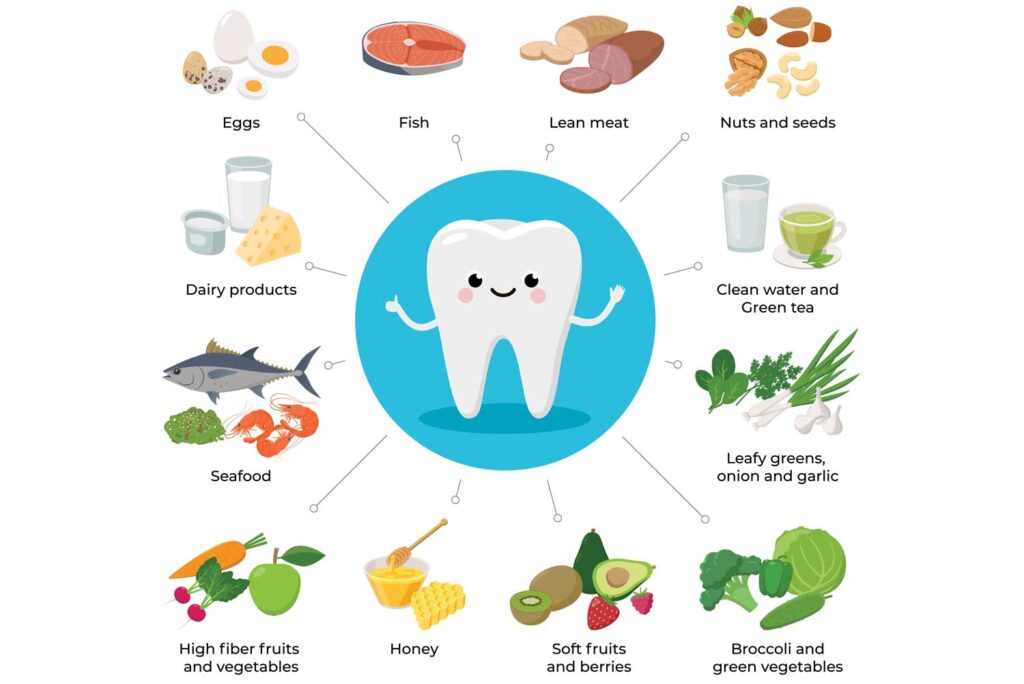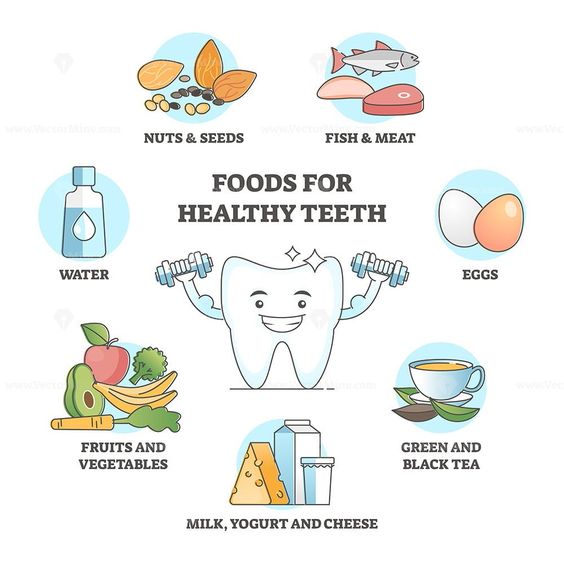
How Diet Affects Your Teeth: Foods to Eat and Avoid
Maintaining a healthy diet is crucial for overall well-being, including your oral health. The foods and beverages you consume can have a significant impact on the health of your teeth and gums. Understanding how your diet affects your teeth and knowing which foods to eat and avoid can help you maintain a bright, healthy smile. For those seeking professional advice, visiting a royal dentist in Ujjain can provide personalized dietary recommendations for oral health.
The Connection Between Diet and Oral Health
The health of your teeth and gums is directly influenced by the nutrients you consume. A balanced diet provides the essential vitamins and minerals needed to strengthen tooth enamel, fight off infections, and maintain healthy gums. Conversely, a poor diet can contribute to tooth decay, gum disease, and other oral health issues. If you are looking for guidance, a visit to the best dentist in Ujjain can help you tailor your diet to support your dental health.

Foods That Promote Healthy Teeth
Dairy Products
Dairy products like milk, cheese, and yogurt are excellent sources of calcium and phosphorus, which are essential for strong teeth and bones. These foods also help neutralize acids in the mouth, reducing the risk of tooth decay.
Leafy Greens
Leafy greens such as spinach, kale, and broccoli are rich in vitamins and minerals, including calcium and folic acid. These nutrients help strengthen tooth enamel and promote healthy gums.
Crunchy Fruits and Vegetables
Apples, carrots, and celery are not only nutritious but also help clean your teeth as you eat them. Their crunchy texture stimulates saliva production, which helps wash away food particles and bacteria.
Nuts and Seeds
Nuts and seeds, particularly almonds, walnuts, and flaxseeds, are rich in essential nutrients like calcium, magnesium, and phosphorus. They also require a lot of chewing, which increases saliva flow and helps cleanse the mouth.
Fish and Lean Proteins
Fish, especially fatty fish like salmon, and lean proteins such as chicken and turkey are excellent sources of phosphorus and vitamin D. These nutrients are vital for maintaining strong, healthy teeth and bones.
Water
Water is essential for overall health, including oral health. Drinking water helps rinse away food particles and bacteria, and staying hydrated stimulates saliva production, which is crucial for maintaining a healthy mouth.
Green and Black Tea
Green and black tea contain compounds called polyphenols that help reduce the growth of bacteria and prevent plaque formation. These teas can also help fight bad breath.

Foods to Avoid for Healthy Teeth
Sugary Foods and Beverages
Sugary foods and drinks, such as candies, sodas, and pastries, are some of the worst offenders for your teeth. Sugar feeds the bacteria in your mouth, leading to the production of acids that erode tooth enamel and cause cavities.
Acidic Foods and Beverages
Foods and drinks high in acidity, like citrus fruits, tomatoes, and vinegar-based dressings, can wear down tooth enamel over time. While these foods can be part of a healthy diet, it’s important to consume them in moderation and rinse your mouth with water afterward.
Sticky Foods
Sticky foods, such as dried fruits, caramel, and gummy candies, cling to your teeth and are difficult to remove. This prolonged exposure to sugar increases the risk of tooth decay.
Starchy Foods
Foods high in starch, such as bread, chips, and pasta, can break down into sugars in the mouth and contribute to plaque buildup. These foods often get stuck in the crevices of your teeth, promoting bacterial growth.
Carbonated Beverages
Carbonated beverages, including sodas and sparkling water, can be harmful to your teeth due to their acidity. Even diet sodas, which do not contain sugar, can erode tooth enamel over time.
Alcohol
Alcohol can dry out your mouth, reducing saliva production and making it easier for bacteria to thrive. It can also lead to gum disease and other oral health issues. Drinking alcohol in moderation and staying hydrated can help mitigate these effects.

Tips for a Tooth-Friendly Diet
Limit Sugar Intake
Reducing your sugar intake is one of the best things you can do for your oral health. Be mindful of hidden sugars in processed foods and opt for healthier alternatives whenever possible.
Choose Whole Foods
Whole foods, such as fresh fruits, vegetables, nuts, and lean proteins, are less likely to contribute to tooth decay compared to processed foods. They also provide essential nutrients for overall health.
Eat a Balanced Diet
A balanced diet that includes a variety of foods from all food groups ensures that you get the necessary vitamins and minerals for healthy teeth and gums. Focus on nutrient-dense foods that promote oral health.
Practice Good Oral Hygiene
No matter what you eat, practicing good oral hygiene is crucial. Brush your teeth twice a day with fluoride toothpaste, floss daily, and visit your dentist regularly for checkups and cleanings. Consulting a top dentist in Ujjain can help you establish a personalized oral care routine.
Rinse After Eating
Rinsing your mouth with water after eating can help remove food particles and reduce the acidity in your mouth. This is especially important after consuming sugary or acidic foods and beverages.
Use a Straw
When drinking sugary or acidic beverages, using a straw can help minimize contact with your teeth and reduce the risk of enamel erosion.
Chew Sugar-Free Gum
Chewing sugar-free gum after meals stimulates saliva production, which helps neutralize acids and wash away food particles. Look for gum containing xylitol, a natural sweetener that can help reduce the risk of cavities.
Stay Hydrated
Drinking plenty of water throughout the day helps keep your mouth moist and supports saliva production. Staying hydrated is essential for overall health and can help prevent dry mouth, which increases the risk of tooth decay.

